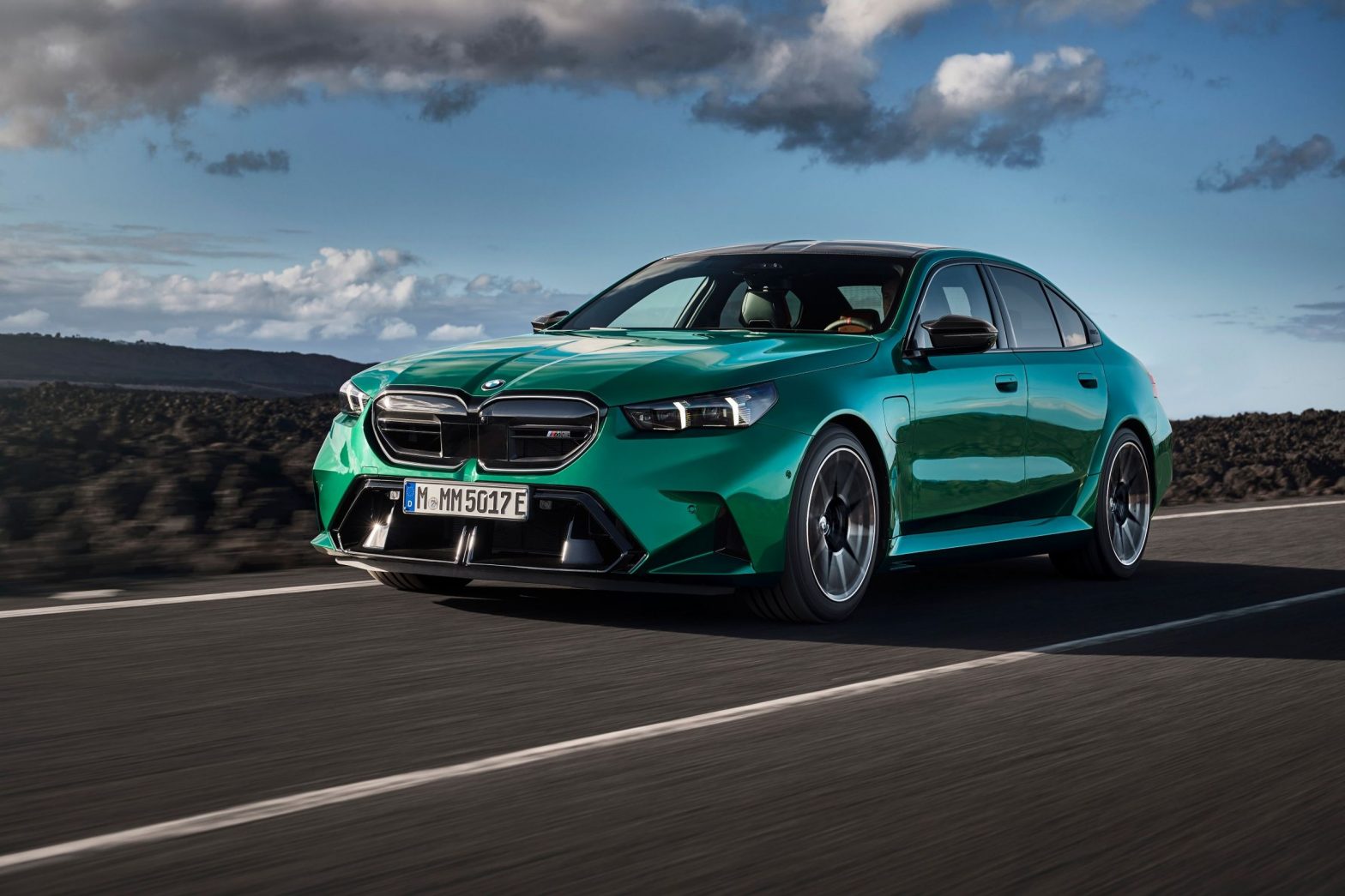/
BMW’s fully electric M car is still a couple of years out, though.
Share this story
:format(webp)/cdn.vox-cdn.com/uploads/chorus_asset/file/25507794/2025_BMW_M5_lowRes.jpg)
BMW’s 2025 BMW M5, which is coming as a plug-in electric hybrid (PHEV) for the first time, will be a husky vehicle. With an electric motor to go along with its 4.4-liter V8 engine, the sedan will weigh in at a hefty 5,390 pounds when it launches during the fourth quarter of 2024.
That makes the new M5 about 1,000 pounds heavier than the 2023 model that preceded it. It also weighs more than trucks like the 2022 Chevrolet Tahoe (5,356 pounds), the 2024 Lucid Air Sapphire (5,336 pounds), and the 2024 Range Rover Sport (5,090 pounds), Motor1 noted today. Unlike Lucid’s EV, though, the M5 can’t blame as much of its heft on the battery, which is only big enough to go 25 miles without using gas.
The M5 isn’t the heaviest electrified BMW — the all-electric 2024 i7 M70, for instance, sits at a beefy 6,191 pounds. Meanwhile, the 2024 750e xDrive Sedan PHEV has a 5,635-pound gross curb weight.
The new M5 PHEV can go from 0–60mph in 3.4 seconds and tops out at 190mph under gas power if you get BMW’s M Driver’s Package. Using just the electric motor, it can go as fast as about 87mph. By default, the car runs in hybrid mode, using both internal combustion and electric power, with the output ratio of each determined by how the driver configures the car in the M Setup menu. And when the battery gets low, BMW says the engine will start outputting more power to charge it.
The company makes other pure EVs, including the i4 M50, the i5 M60, and the i7 M70. But BMW has grander plans to produce a properly electrified M model (that is, not an i-series M Performance car) a couple of years after its Neue Klasse EV architecture launches in 2025.
:format(webp)/cdn.vox-cdn.com/uploads/chorus_asset/file/25347667/P90543416_highRes.jpg)
Future BMW M model EVs will use the company’s own internally developed batteries and EV motors, M program boss Franciscus Van Meel recently told Road & Track.
That platform includes new systems to detect and relay sensor data to the car’s central computer, which the M division has been involved in developing. Van Meel said BMW’s EVs equipped with this system, dubbed Heart of Joy, would “react ten times faster than before” to things like wheelspin or locked-up brakes, along with enhancements to stability control, traction control, and overall performance.
